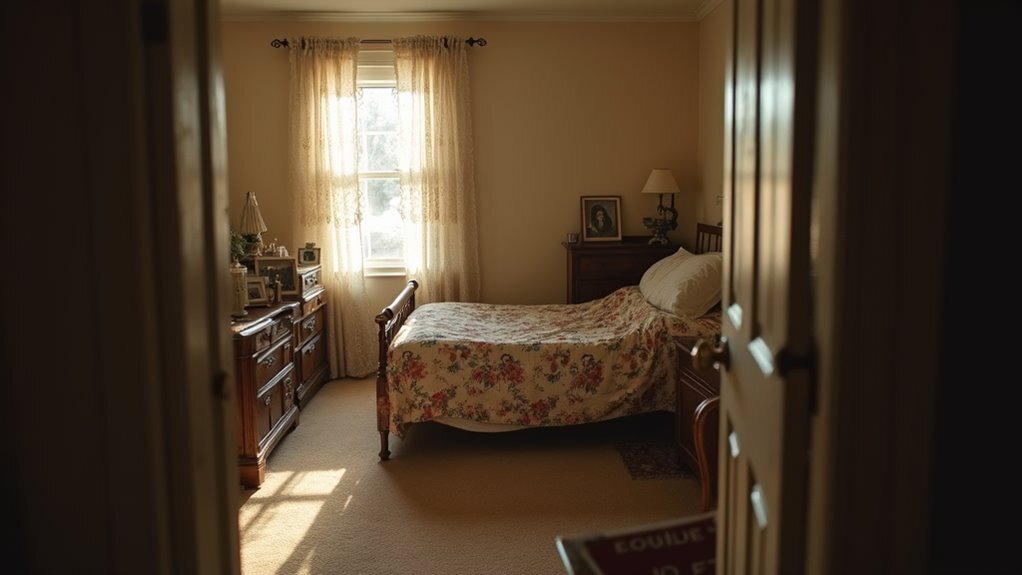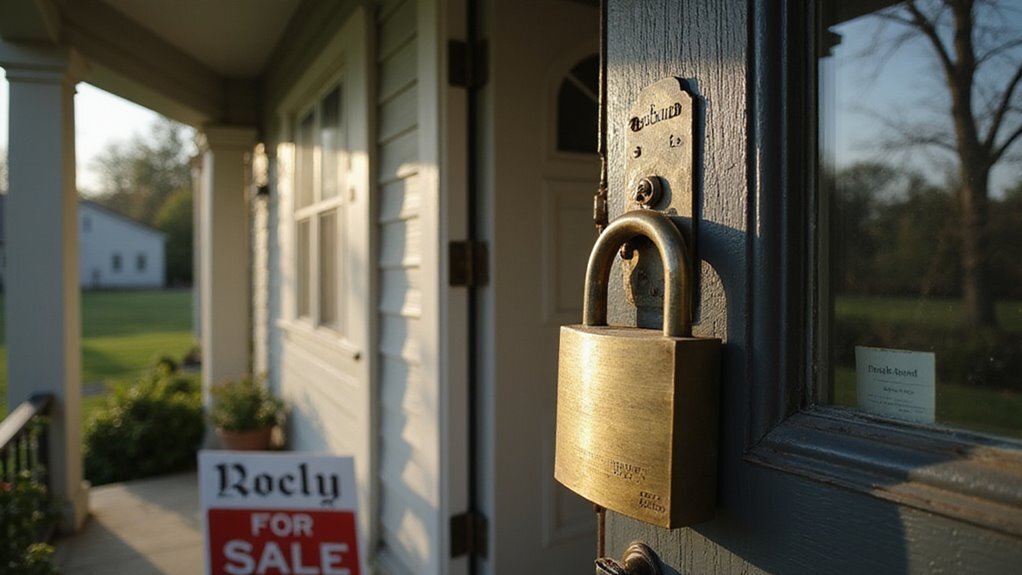Dealing with property after losing a mother creates overwhelming emotional and legal challenges for many families. The fear of lengthy probate proceedings can freeze crucial decisions about selling inherited property. Complex legal requirements and mounting costs often force families to postpone necessary sales. Fortunately, several legal pathways exist to sell property without going through traditional probate.
You can legally sell your deceased mother’s house without probate through joint ownership arrangements, living trusts, or transfer-on-death deeds. These options bypass standard court proceedings, saving time and money. The specific method depends on how your mother held the property title and your state laws.
This blog explores every aspect of selling your deceased mother’s house without going through probate court.
Key Takeaways
- Ownership transfer methods like joint tenancy, living trusts, or transfer-on-death deeds can bypass probate for selling the house.
- Small estate affidavits are available if the estate meets specific value criteria, enabling quick sale without probate.
- Properly executed and recorded transfer-on-death or Lady Bird deeds allow heirs to sell without court involvement.
- Consulting a local attorney ensures compliance with state-specific laws regarding property transfer post-death.
- Preparing essential documents (death certificates, affidavits, deeds) streamlines the sale process outside of probate court.
Can You Sell a Deceased Mother’s House Without Probate?

A deceased mother’s house can be sold without probate in specific situations. The property must be held in certain ways to bypass probate court, such as joint ownership or through a living trust.
Several legal options exist to avoid probate, including small estate affidavits and transfer-on-death deeds. These methods allow a faster sale process. Moreover, the approach saves time and money for all heirs.
As a result, beneficiaries can receive their inheritance sooner without court intervention. Each state has different rules about property transfers after death, so consulting a local attorney is essential.
What Happens to Property After Someone Dies?
When someone dies, their property doesn’t automatically transfer; it depends on the legal ownership process and whether a will exists. If there’s a will, it directs how the estate is distributed; if not, Florida’s intestate laws determine who inherits. Understanding these rules is crucial to avoid delays and complications in selling the property.
Legal Ownership Transfer Process
Property ownership requires specific legal steps after someone dies. The law mandates formal transfers through probate court or valid estate documents. A small estate affidavit offers a quick transfer option for qualifying estates under state thresholds.
Several tools can simplify the process for beneficiaries. Lady Bird deeds allow property to pass directly to heirs without court involvement. Quick action prevents potential ownership disputes. Therefore, proper documentation and timely filing ensure smooth transitions.
The Role of a Will in Property Transfer
A will legally directs the transfer of property after death. Your property and assets pass to beneficiaries according to your documented wishes in a will. Without this document, state inheritance laws determine who receives your estate.
The transfer process becomes faster and clearer through proper will documentation. Your loved ones face fewer legal hurdles when inheriting your assets. As a result, your final wishes remain protected and respected.
Furthermore, an updated will prevents family disputes over property distribution. Florida law requires specific elements to make your will valid and enforceable. A well-planned will serves as a lasting gift to your family.
Intestate Succession Rules
Florida law decides who inherits property when someone dies without a will. A surviving spouse receives the entire estate if all children belong to both spouses. Children split the estate equally if no spouse exists.
Parents inherit only when there are no spouses or children. Siblings become eligible after parents, while distant relatives have the lowest priority. This order protects immediate family members first.
Legal heirs must complete probate to claim their inheritance. Quick property sales require all heirs to agree. A proper understanding of these succession rules prevents family disputes and speeds up asset distribution.
What is Probate and Why Might You Want to Avoid It?
Probate can stretch out for months, draining time and resources just to transfer your loved one’s property. It’s costly, with fees eating into estate value, and the process is public, exposing private family matters. Avoiding probate means a faster, cheaper sale and keeps your family’s affairs private—so understanding how to do that is crucial.
Probate Process Explained
Probate legalizes a deceased person’s will and transfers their assets through court supervision. The process takes 6-12 months on average and requires specific legal documents and court approval. A judge must validate the will, appoint an executor, and ensure proper distribution of property.
Three main probate steps include filing paperwork with the court, validating the will’s authenticity, and transferring assets after debt settlement. Moreover, heirs can bypass probate through small estate affidavits in some states.
Estate values under $50,000 often qualify for simplified probate procedures in most US jurisdictions. This streamlined approach reduces delays and legal expenses for beneficiaries.
Time Constraints and Delays
Time constraints and delays in probate create significant estate settlement challenges. The standard probate process takes 6-24 months to complete in most states. Creditors receive up to 2 years to file claims against the estate. Legal procedures and court schedules often cause additional slowdowns.
To move forward efficiently, consider alternatives to traditional probate. Transfer-on-death deeds and living trusts can help bypass lengthy proceedings. Moreover, small estate affidavits may qualify for expedited processing under certain conditions.
Rather than waiting, smart planning helps protect assets and fulfill wishes promptly. State laws provide specific options to accelerate property transfers while maintaining legal compliance.
Costs Associated With Probate
Probate costs include legal fees, court charges, executor payments, and asset appraisals. Legal fees alone typically range from 3% to 7% of the total estate value. Court filing fees vary by state but average $200 to $1,500 for basic probate cases.
The estate size and complexity directly affect total expenses. Small estates under $50,000 may qualify for simplified probate with reduced costs. Large estates over $1 million often face higher percentage-based fees.
Simple steps can reduce probate expenses significantly. Trust creation, joint property ownership, and beneficiary designations help assets bypass probate entirely. Proper planning protects more inheritance for loved ones.
Public Nature of Probate Proceedings
Probate proceedings are fully public and accessible to anyone. Court records will show all details about assets, debts, wills, and beneficiaries. The law requires transparency throughout the entire probate process.
This public nature brings specific privacy concerns for families. Personal financial information becomes available to neighbors, business competitors, and strangers. Identity thieves can potentially access sensitive data through these records.
As a result, many families prefer alternative estate planning methods. Private trusts and direct beneficiary designations can transfer assets without public disclosure. These options maintain family privacy while achieving the same legal outcomes.
How to Determine if the House Can Skip Probate?

You need to act quickly to see if probate can be avoided, starting by checking if the house is owned jointly with survivorship rights or held in a trust. If not, ask whether a Transfer-on-Death deed or small estate affidavit applies, especially if the estate is under Florida’s value threshold. Don’t delay—these options can save time and money by bypassing formal probate.
Joint Ownership With Right of Survivorship
Joint ownership with right of survivorship allows property to bypass probate court after an owner’s death. The surviving owner receives immediate ownership rights automatically.
A property deed must specifically state “joint tenancy with right of survivorship” for this benefit. The title documents need clear language about survivorship rights between co-owners. A simple title transfer completes the ownership change.
Smart estate planning through joint ownership protects families from lengthy probate processes. Legal documents require careful review to ensure proper survivorship rights exist.
Transfer-on-Death Deeds
Transfer-on-Death deeds enable property to pass directly to beneficiaries without probate court involvement. A TOD deed must be properly recorded before the owner’s death to be legally valid. The property transfers automatically to named beneficiaries upon death verification.
To confirm a TOD deed’s status, check county records or consult an estate attorney. Most states require the deed to be signed, notarized, and recorded at the county recorder’s office. The beneficiaries can claim ownership quickly after providing proof of the owner’s death.
Furthermore, this simple estate planning tool saves time and money for heirs. Without a TOD deed, the property must go through standard probate procedures.
Living Trusts
A living trust transfers property ownership while avoiding probate court after death. The trust must be created and funded while the owner is alive to be valid. Three requirements exist for proper trust setup: official transfer of the house title, active trust status, and clear trustee authority.
This legal tool offers privacy and speed compared to traditional probate processes. Families can access assets quickly without court delays or public records. Smart estate planning helps protect assets and simplifies inheritance for loved ones.
Small Estate Affidavits
Small estate affidavits help bypass probate for modest estates. Estates valued under $75,000 qualify for this simplified process through a small estate affidavit. The affidavit must be filed with proper documentation at your local court.
Moreover, specific requirements include proof of the estate’s value and confirmation that no exempt property exists. This legal tool saves time and reduces costs for bereaved families.
A properly executed small estate affidavit transfers property ownership without lengthy court proceedings. Quick action protects all parties and simplifies asset distribution.
What Are the Legal Ways to Sell Without Probate?
You need to act fast to sell your deceased mother’s house without probate, and there are legal options that can help. Using tools like Lady Bird deeds, beneficiary deeds, or small estate procedures can transfer ownership quickly and avoid court delays. Don’t wait—these methods are time-sensitive and require strict compliance to protect your interests.
Using a Lady Bird Deed
A Lady Bird Deed transfers property ownership while protecting your control during life. This legal document allows you to keep full property rights until death. Your beneficiaries automatically receive the property after you pass away without probate. The deed maintains your ability to sell or refinance without restrictions.
Moreover, this arrangement preserves privacy and reduces costs for your heirs. Florida law recognizes Lady Bird Deeds as a valid estate planning tool. Your loved ones can avoid lengthy court proceedings and inherit smoothly.
To establish strong protection, proper document preparation remains essential. A qualified attorney can ensure correct deed creation and recording.
Beneficiary Deeds in Florida
Florida does not recognize beneficiary deeds as a valid property transfer method. Property owners must use other legal tools like living trusts or wills to transfer real estate after death.
Traditional estate planning methods remain necessary for Florida property transfers. A living trust offers similar benefits by avoiding probate and enabling smooth ownership transitions. The trust becomes the legal owner while you maintain control during your lifetime.
Alternative options include joint ownership with rights of survivorship or life estate deeds. These legal arrangements help Florida residents achieve their property transfer goals within state law requirements.
Limited Power of Attorney Options
Limited power of attorney options allow someone to act on your behalf for specific tasks. A limited POA must specify exact permissions and time periods for the designated tasks. Three common options include financial, real estate, and healthcare POAs.
Legal counsel helps ensure proper documentation and authority limits. Your attorney can customize the POA to match your unique needs. The right POA protects both parties while enabling efficient transactions.
Moreover, all POA documents require notarization and witness signatures to be valid. A well-structured POA saves time and prevents future complications.
Small Estate Procedures in Florida
Florida offers simplified procedures for small estates without full probate. Estates valued under $75,000 qualify for the small estate affidavit process. The affidavit allows direct property transfers without court oversight.
The process requires specific documents from the heir. A death certificate, sworn statement, and supporting paperwork must accompany the affidavit. This streamlined method protects privacy by avoiding public records.
Moreover, this option saves substantial time and costs. Heirs must file within two years of the death date for eligibility. The property transfers securely to rightful beneficiaries through this simplified legal path.
What Are the Risks of Selling Without Proper Authority?

Legal risks from unauthorized property sales include lawsuits, financial penalties, and transaction reversals. You may face criminal charges and civil claims when selling property without proper authority or documentation. The courts can void any unauthorized sales and force you to return all proceeds.
Beyond legal consequences, unauthorized sales damage professional relationships and personal reputation. Your credibility in real estate matters suffers significant harm. Moreover, future transactions become more difficult.
To protect yourself, obtain official authorization through probate court or proper legal channels before initiating any sale. Simple preventive steps save time, money, and stress in property transactions.
How to Sell a Probated Property Quickly?
To sell a probated property quickly, you need to act fast and efficiently coordinate key steps. Work with cash home buyers to speed up the sale, ensure all documentation is prepared and accurate, and set a competitive price to attract buyers. Clearing the property of liens and handling mortgages promptly will also prevent delays and close the deal faster.
Working With Cash Home Buyers
Cash home buyers offer a fast, direct way to sell properties without traditional real estate processes. They purchase houses with immediate payment, no mortgage approval delays, or realtor fees. Most cash buyers can close within 7-14 days and handle all paperwork.
These buyers specialize in quick purchases of inherited homes and distressed properties. A legitimate cash buyer will provide proof of funds and references upfront. You can expect offers between 70-85% of market value in exchange for speed and convenience.
Professional cash buyers simplify the selling process through transparent terms and minimal requirements. Your property sells as-is, eliminating repair costs or staging needs. Beyond that, this option reduces stress during challenging life transitions.
Preparing Documentation
Required Documents for Probate Property Sales: An affidavit of heirship proves your legal right to sell inherited real estate. A quitclaim deed transfers property ownership from the deceased to current heirs. Death certificates and court letters of administration validate your authority to sell.
For smooth transactions, secure all paperwork early. A complete documentation package speeds up closing times. Local laws may require additional forms like tax clearances or probate court approvals. These documents protect all parties involved.
Setting the Right Price
The right price balances market value with a reasonable profit margin. A fair price attracts serious buyers while protecting the seller’s interests.
Research shows properties priced within 5% of market value sell 30% faster. A real estate agent can analyze recent sales data to determine optimal pricing. Local market conditions and property features affect the final price point.
Most sellers succeed by pricing slightly below comparable homes. Properties listed at 2-3% under market value receive more offers within the first week. This strategy creates urgency and attracts motivated buyers. Furthermore, competitive pricing reduces holding costs and marketing expenses.
Clearing the Property
Clear the property of all personal items and legal issues before listing it for sale. A clean title requires proof of legal ownership and resolution of any inheritance disputes. Remove furniture, trash, and excess belongings from the house. Pay off outstanding taxes, mortgages, and liens against the property.
The estate must pass through probate unless ownership transfers through trusts or joint rights. Property titles with multiple heirs need written agreements from all parties. A clean, empty house attracts more buyers and speeds up closing.
Handling Existing Mortgages
Existing mortgages require immediate attention during property probate sales. A mortgage must be fully paid off or properly transferred before closing can occur. The lender needs to provide an official payoff statement with the exact remaining balance.
Three key steps protect the sale: request current loan statements, arrange payoff from proceeds, and obtain lender approval for any transfers. These actions prevent legal complications and title problems later.
Clean title transfer depends on proper mortgage handling. The executor should contact lenders early to understand requirements and deadlines. Meanwhile, clear communication with heirs helps set expectations about debt resolution.
Conclusion
Selling a deceased parent’s home requires careful consideration of legal requirements and available options. Understanding the probate process and alternatives can help streamline the sale of inherited property. Working with experienced professionals ensures compliance with state laws while protecting your interests.
At Greg Buys Houses, we understand the challenges of selling inherited properties in Pensacola and nearby Florida cities. We help families navigate through complex real estate transactions during difficult times. Our team specializes in buying houses directly from heirs, often eliminating the need for lengthy probate processes. We offer fair cash offers and handle all necessary paperwork.
If you’re dealing with an inherited property in Florida, we can provide a straightforward solution for your situation. Our experienced team will guide you through every step of the selling process. We buy houses in any condition and can close quickly once legal requirements are met. Contact us today to discuss your options and receive a no-obligation cash offer.

